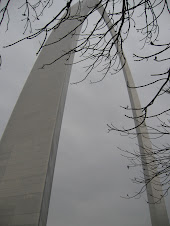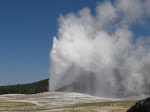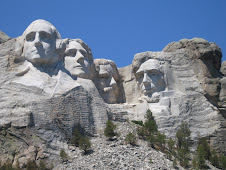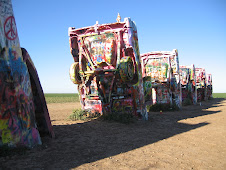"Long-term access to government publications is an important component of our democracy and likewise is an important responsibility of government information librarians" (Murray, et al., 2008, pp 66). Everything from the US Geological Society to the Supreme Court utilize archives and attempt to provide free access to them electronically, via the web. The only downside to internet archives are the extensive amount of work to be done to make the goal a reality.
To produce a document online, involves processing the document, digitalizing the format it is in (whether that be through .pdf, .jpg, or anything else offered), organizing the collection, creating an online search and organization tool, and then publishing the document in its new format to the electronic outlet. A digital archives project, depending on the scale of the project, can take years.
Of course, that is only one type of web archiving. The other option, is to archive any and all web published documents, that may or may not also be available in print editions. "Limitations posed by librarians' current abilities and resources make it difficult for them to meet the challenges that accompany the preservation of Web publications. Web archiving may provide a solution for
the acquisition and preservation of Web-published government information and enable longterm information access for a wide-range of citizens, residents, and communities" (Murray, et al, 2008, pp 66-67).
The number of Americans with regular access to computers and the internet has grown considerably over the past decade. Traditionally it is hard for rural communities to have access to the necessary tools to further their individual and collective knowledge; libraries can play an important role in this area, by supplying the internet. “The Internet has the potential to change rural life, which historically has been isolated economically, socially and politically” (Boris, 2005, pp 4). Library implementation of computers and internet access grants rural citizens a chance to keep up with the pace set by urban societies. The information age began in the late 1990’s and seems to have no inclination of slowing down, let alone stopping. Luckily, 90% of all rural libraries in the U.S. have internet access (Flatley, 2001, pp 7).
Sources:
Boris, L. (2005). The Digital Divide and its Impact on the Rural Community. Rural Libraries, 25(2), 7-35.
Flatley, R. (2001). Rural librarians and the Internet: a survey of usage, attitudes, and impact. Rural Libraries, 21(1), 7-23.
K.R. Murray, I.K. Hsieh. (2008) "Archiving Web-published materials: A needs assessment of librarians, researchers, and content providers". Government Information Quarterly. 25. pp 66-89 Retreived on April 13, 2008 from HW Wilson Online, http://vnweb.hwwilsonweb.com.proxy.usf.edu/hww/results/results_common.jhtml;hwwilsonid
=R3TLENB3MX5ZXQA3DILCFGGADUNGIIV0
Sunday, April 13, 2008
Comparisons
Searching for archiving information can seem like a daunting task at times. The amount of information available is remarkable. Yesterday I stumbled upon the US Geological Survey Photographic Library. Almost immediately I began looking for pictures of places I have been. The following pictures are the results of my inquest.
 This first picture is looking at Elizabeth Lake fromPtarmigan Tunnel. It was taken in July of 1984.
This first picture is looking at Elizabeth Lake fromPtarmigan Tunnel. It was taken in July of 1984.
Source: US Geological Survey Photographic Library. Glacier National Park. Retrieved on April 13, 2008 from href="http://libraryphoto.cr.usgs.gov/
cgi-bin/search.cgi?seach_mode=exact;selection=Glacier%20
National%20Park%7CGlacier%20National%20Park;
start=400">
 This picture is one I took last summer, at the same location.
This picture is one I took last summer, at the same location.
 This picture was taken in 1901 at Avalanche Lake. Source: US Geological Survey Photographic Library. Glacier National Park. Retrieved April 13, 2008 from href="http://libraryphoto.cr.
This picture was taken in 1901 at Avalanche Lake. Source: US Geological Survey Photographic Library. Glacier National Park. Retrieved April 13, 2008 from href="http://libraryphoto.cr.
usgs.gov/cgi-bin/search.
cgi?seach_mode\=exact;
selection=Glacier%
20National%20Park
%7CGlacier%20National%
20Park;start=775">

This picture, taken last summer, is of the same rock wall around the lake.
It is interesting to see how little this particular area has changed over the years. Although, with this last set, the rock seems to have worn down some over the last 100 or so years. Without this electronic photography archive, I might never have seen any of the pictures in the US Geological Survey's Library.
 This first picture is looking at Elizabeth Lake fromPtarmigan Tunnel. It was taken in July of 1984.
This first picture is looking at Elizabeth Lake fromPtarmigan Tunnel. It was taken in July of 1984.Source: US Geological Survey Photographic Library. Glacier National Park. Retrieved on April 13, 2008 from href="http://libraryphoto.cr.usgs.gov/
cgi-bin/search.cgi?seach_mode=exact;selection=Glacier%20
National%20Park%7CGlacier%20National%20Park;
start=400">
 This picture is one I took last summer, at the same location.
This picture is one I took last summer, at the same location. This picture was taken in 1901 at Avalanche Lake. Source: US Geological Survey Photographic Library. Glacier National Park. Retrieved April 13, 2008 from href="http://libraryphoto.cr.
This picture was taken in 1901 at Avalanche Lake. Source: US Geological Survey Photographic Library. Glacier National Park. Retrieved April 13, 2008 from href="http://libraryphoto.cr.usgs.gov/cgi-bin/search.
cgi?seach_mode\=exact;
selection=Glacier%
20National%20Park
%7CGlacier%20National%
20Park;start=775">

This picture, taken last summer, is of the same rock wall around the lake.
It is interesting to see how little this particular area has changed over the years. Although, with this last set, the rock seems to have worn down some over the last 100 or so years. Without this electronic photography archive, I might never have seen any of the pictures in the US Geological Survey's Library.
Thursday, April 10, 2008
AIC

There comes a time in every life, where one must work. There are numerous options out there for job seekers in archiving, however, there are far fewer organizations that seek to unite them. "The American Institute for Conservation of Historic and Artistic Works (AIC) exists to support the conservation professionals who preserve our cultural heritage" (AIC, 2008). The organization offers an interesting and well constructed website for this purpose. They also host annual meetings, several workshops, provide scholarships, and assist patrons in finding conservators.
Source: The American Institute for Conservation of Historic and Artistic Works. (2008) Retrieved on April 10, 2008 from http://aic.stanford.edu/index.html.
Friday, March 28, 2008
Archving, a look
I went on a journey to discover what Archiving is, only to learn that it is far more complicated and interesting than my preconceived notion. Archiving is more than a backup of information; it is a source of information. Yes, it is a backup, and backups are sources of information; however, an archive is legally the same as having the original. Archived materials can not be reproduced without permission. Intellectual property laws included archived materials. This can be as simple as keeping a copy of a manuscript on an external hard drive and in print, thus rendering the same, only not the same. They may be the same word for word, only one is on paper and the other requires an external device to view.
Archives also preserve the work for long time periods. Let’s face it, print versions do not last forever. Sometimes they get wet, or even burned in the case of Bradbury’s Fahrenheit 451. Whatever the case may be, having more than one format of a work, or at least more than one copy of it, can provide the work to others farther in the future.
While this small idea of mine is hardly the entirety of all archiving information, it is certainly a starting point.
Archives also preserve the work for long time periods. Let’s face it, print versions do not last forever. Sometimes they get wet, or even burned in the case of Bradbury’s Fahrenheit 451. Whatever the case may be, having more than one format of a work, or at least more than one copy of it, can provide the work to others farther in the future.
While this small idea of mine is hardly the entirety of all archiving information, it is certainly a starting point.
Wednesday, March 26, 2008
Archives, Defined
Archive is one of the few words that is a noun and a verb. Actually, it is two different nouns: a place and a document.
According to the Oxford English Dictionary, archive means "a place in which public records or other important historic documents are kept. Now only in pl.; A historical record or document so preserved; To place or store in an archive" (OED, 2008, online).
Likewise, an archivist is "a keeper of archives" (OED, 2008, online).
Source: Oxford English Dictionary. (2008). Retrieved on March 26, 2008 from http://dictionary.oed.com.proxy.usf.edu/cgi/entry/50011586?query_type=word&query
word=archive&first=1&max_to_show=10&sort_type=alpha&result_place=1&search_id=F7sP
-wMELW1-16479&hilite=50011586
According to the Oxford English Dictionary, archive means "a place in which public records or other important historic documents are kept. Now only in pl.; A historical record or document so preserved; To place or store in an archive" (OED, 2008, online).
Likewise, an archivist is "a keeper of archives" (OED, 2008, online).
Source: Oxford English Dictionary. (2008). Retrieved on March 26, 2008 from http://dictionary.oed.com.proxy.usf.edu/cgi/entry/50011586?query_type=word&query
word=archive&first=1&max_to_show=10&sort_type=alpha&result_place=1&search_id=F7sP
-wMELW1-16479&hilite=50011586
Thursday, February 7, 2008
South Carolina

The South Carolina Historical Society has a website with online archives. The Society's collection includes both manuscripts and photographs from early colonization through the present.
The South Carolina Historical Society can be found at http://www.southcarolinahistoricalsociety.org/.
Source:
The South Carolina Historical Society. Retrieved February 7, 2008, from http://www.southcarolinahistoricalsociety.org/archives/onlinearchives.htm
Saturday, February 2, 2008
National Archives of Australia
For those that think of Australia and can't get past the Great Barrier Reef, I suggest they take a look at this website done by the National Archives of Australia. The website highlights Australia's past and present in a way that is very easy on the eyes. Many of the world's nations should be so lucky, or so proud of their heritage and culture to display it with such honor and effort.
Source:
National Archives of Australia. Retrieved on February 2, 2008 from http://www.naa.gov.au/.
Source:
National Archives of Australia. Retrieved on February 2, 2008 from http://www.naa.gov.au/.
Subscribe to:
Posts (Atom)




